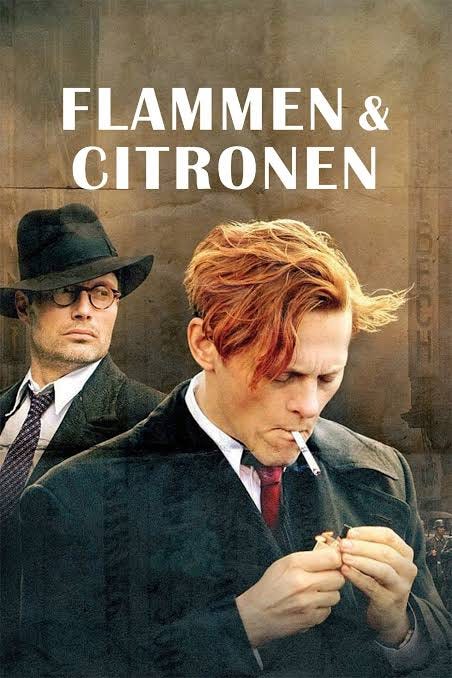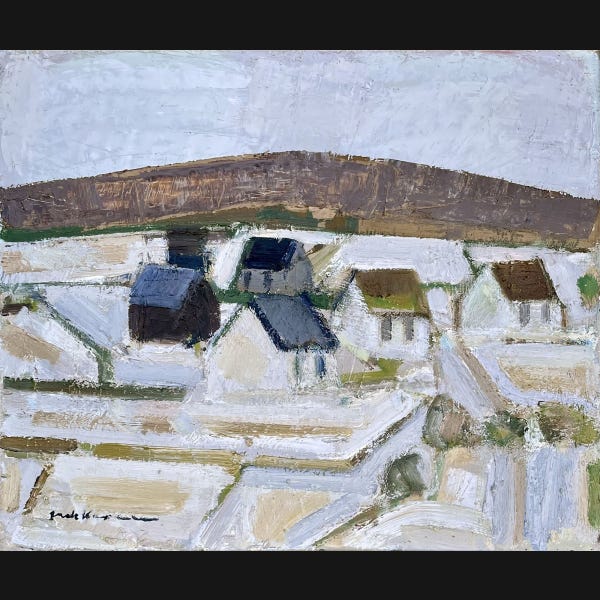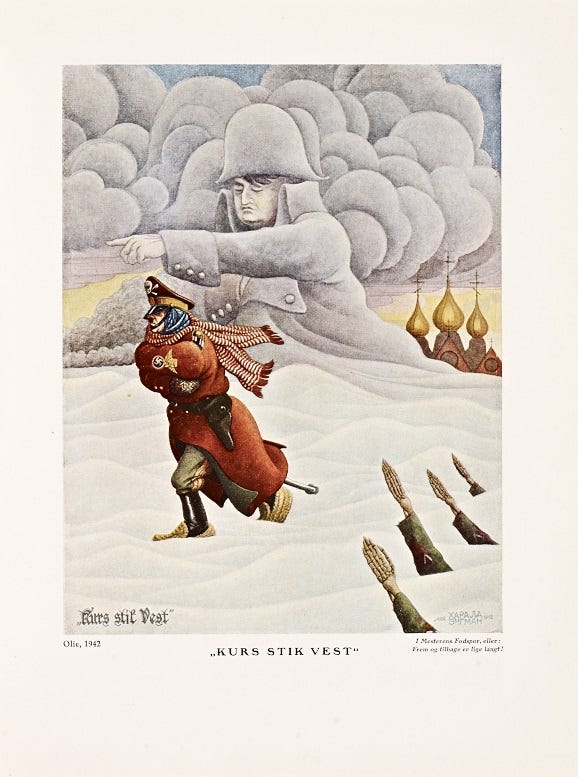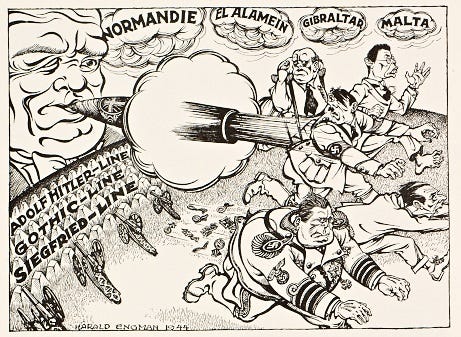Family lore about the German occupation of Denmark 1940-1945
The resistance attitude
Today marks the 85th anniversary of Nazi Germany's invasion and occupation of Denmark (9th April 1940-5th May 1945). Denmark wasn't originally a member of the allied forces, but was a neutral country, which along with Norway was invaded by Germany for "its own protection" (Operation Weserübung). Norway was able to put up a decent resistance (2 months) with the help of the British, French, and Polish assistance. There was little resistance in Denmark at the invasion, as it was too close to Germany (little warning) and no real option to 'flee to the hills' in Denmark water-surrounded Denmark. There is a 2015 movie about invasion day (Occupation Day in Danish), depicting the Danish resistance as brave but futile. Better is the 2008 movie about one of the resistance groups (Flammen og Citronen, The Flame and the Lemon).
The daily life in Denmark during occupation was fairly normal for the first 3 years because the Danish government was ordered by the king to cooperate with the Nazi overlords. In these years, the Danish government remained in control of most matters, and maybe the only important illegal law enacted was the banning of the communist party after 1941 (Germany's invasion of the Soviet Union). This collaboration period is controversial as many people these days think that Denmark should have done more to resist. Real life was not heavily disrupted in this period, aside from the disappearance of many international imported items that were blocked by allied blockades. My maternal grandmother was born in 1933 and thus grew up in this time. She describes the daily life as lacking in goods like chocolate, bananas, and coffee. In 1943 the collaboration period ended because:
As the years went by, the number of acts of sabotage and violence grew. In 1943, the number grew dramatically, to the point that the German authorities became dissatisfied with the Danish authorities' handling of the situation. At the end of August, the Germans took over full administration in Denmark, which allowed them to deal with the population as they wished. The Germans raided every police station in Denmark, disarmed, arrested and deported all 2,000 Danish police officers to Germany.[5] Policing became easier for the Nazis, but more and more people became involved with the movement because they were no longer worried about protecting the Danish government.
My grandmother tells me how the local policeman was arrested and deported. He never returned, so he probably died in a concentration camp, probably Buchenwald. As far as I know, no one from my mother's side was involved in the resistance, as they were farmers far away from German activities. On my father's side, however, a number of people were involved in the Danish resistance. The most impressive was Ebbe Willemoës 'Jack' Kampmann (1914-1989). According to the family tree book (1965) about the family (Kampmann slægten):
Ebbe Willemoës Kampmann (called Jack), painter, born 19. li. 1914 in London, baptized 1917 in Copenhagen. Schooled in America and Farum Realskole. Painter apprentice in Aarhus and journeyman smstd. Student of the Academy, 2nd semester 1933-34 under Sigurd Wandel. Member of the
Censorship Committee at the Artists' Autumn Exhibition 1938. Traveled in 1938 on a study trip to Paris and from there to England to participate in the Second World War as an English soldier, and came in 1941 as a member of the security police to the Faroe Islands and from there again to England and with the invasion troops through Holland, Belgium and Germany to Denmark. Lived in the Faroe Islands from 1948. Several scholarships and grants. Exhibitions: 1935-39» 1947-48- Carlsons Pr. 1938, 1948.
He was the brother of my great grandmother (father's mother's mother's brother), thus my great-great-uncle. His paintings mostly concern the Faroe Islands, and I am considering buying some of them or at least the original prints.
Some of his service history is verifiable in online sources, as he apparently worked for British intelligence. The information is sparse, but maybe one can find something more in archives of the SOE. He was perhaps inspired for this activity because his mother was Jewish (Lise Kampmann, nee Abramowitz).
Another resistance member or activist was my great grandfather Harald Rudyard Engman (1903-1968), married to Trine Kampmann. Wikipedia:
Little has been published about Engman's life. It is known that he traveled as a working seaman and spent some time living in New York City's Chinatown around 1920. He began to show paintings in Copenhagen in the mid-1920s. He became part of a group of self-styled "Underground Painters". His shows always inspired controversy as he utilized caricature and satire to mercilessly criticize social ills and those in power, especially the growing power of the Nazi Party in Germany. These shows culminated in 1940 with the "Black Banners" show in Copenhagen aimed directly at the Nazi leadership. Refusing to remain silent about Hitler, Engman "depicted Der Fuhrer, not as a genius of satanic majesty, as many Danish Anti-Nazis saw him, but as a psychopathic misfit, a frightened and conceited fool, sort of a ludicrous master clown of the world's arena."[3] Following this show Engman was forced into exile in the North Zealand and eventually fled occupied Denmark for Sweden where he remained through the war. In Sweden he continued to criticize the Nazis with his art, painting and contributing drawings to the journal The Dane as well as some Swedish publications.[3]
His paintings included things like the following:
An oil painting from 1942, the title is "Course directly west". It shows the retreating Nazis from Russia, some died but still heiling in the snow. Sad Napoleon knows the way.
After he had to flee Denmark to Sweden, he started writing in English, such as in this drawing from 1944 showing the various battles the Germans were losing (Normandy, El Alamein, Gibraltar, Malta) along with their crumbling defensive lines (e.g. Siegfried line). Churchill is shooting them with smoke from his cigar.
Fellow Danish intelligence researcher Helmuth Nyborg (January 1937-) tells me that his family was also involved in the local resistance, around Vejle I guess. I don't know their names, so I can't find information online. But his retelling is that he recalls the German bomber planes flying in during the invasion, when he was 3.25 years old or so. His father sometimes had to hide in the attic when maybe the Germans were looking for him.
I take some pride in knowing that both the most famous Danish intelligence researchers come from resistance movement families. The same attitude to stand up for what one believes is right in the face of personal risk. Helmuth and his family received credible death threats when he decided to run for parliament for an anti-immigration party, and withdrew shortly thereafter (the perpetrator was sentenced for these threats). It is fortunate that today being an intelligence researcher looking at group differences merely risks getting defamed and fired, while our ancestors risked getting killed and tortured.
If readers have any good family stories about world war 2, please share in the comments!






My father fought in WWII, in the Asian Theatre. He helped take back the Bataan peninsula, for example. He said that when they trapped the "Japs" (the term at that time) for example in a cave, the Lieutenant would tell them "Come out!". They never came out. Dad and his company then had to incinerate them with flamethrowers.
Dad was Catholic; he went to the chaplain, saying "I don't think this is right." The chaplain replied "This is your duty." Dad said "I still don't think it's right."
At the end of dad's life, he died due to an overdose of radiation therapy. It took 18 excruciating months of internal burn pain, before he did die. He told me "I hope that I never hurt any of those men as bad as I'm hurting."
On my mom's side of the family, in occupied Poland, my cousins were young boys and one time threw rocks at German soldiers passing by on motorcycles. Their dad (my uncle or actually half-uncle) beat them (his sons, my cousins) pretty bad. Like spanking but worse. He told them that they could get the whole family killed, which was true. None of my immediate family were killed but a more distant "great uncle" of mine was one of the officer corps killed by the Russians at Katyn. For those who don't know the incident, the Russians (or the USSR) intentionally decapitated both the Polish intelligentsia and the officer corps. Their plan was to keep Poles under servitude, squelch resistance.
That period of the Katyn massacre was interesting from an historical and "totalitarian propaganda" point of view. It was the Germans during WWII who unearthed (literally) the Katyn massacre and correctly pointed out that the Russians had committed the massacre. But the Russians blamed it on the Germans. It was an odd situation of the detested German beast actually telling the truth during wartime.
In fact the USSR/Russians/communists kept up the lie until the fall of communism. Poles knew who was guilty but all official sources claimed that the Germans/Nazis/Hitlerites (terms varied) did it.
I never did like the Woke folk but they did have one point - there's a relationship between lies/propaganda/PR, and violence.
My Oma told me that in the Netherlands they had regularly fed German soldiers. I doubt it’s because they wanted to, but she said it wasn’t extremely adversarial. One story she shared is that one German soldier during dinner time misfired his gun while showing her father. He almost shot her sister in a high chair. The German left crying and apologizing.